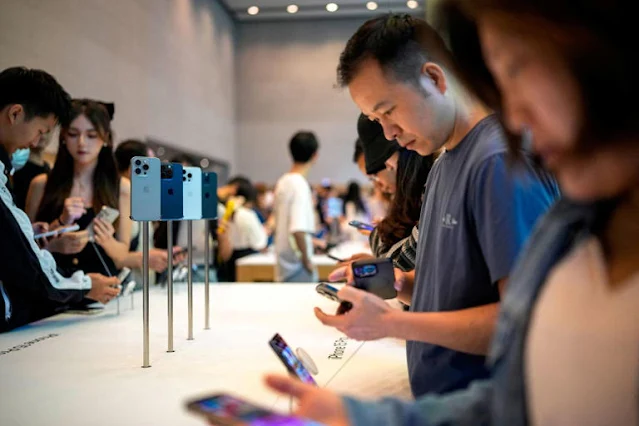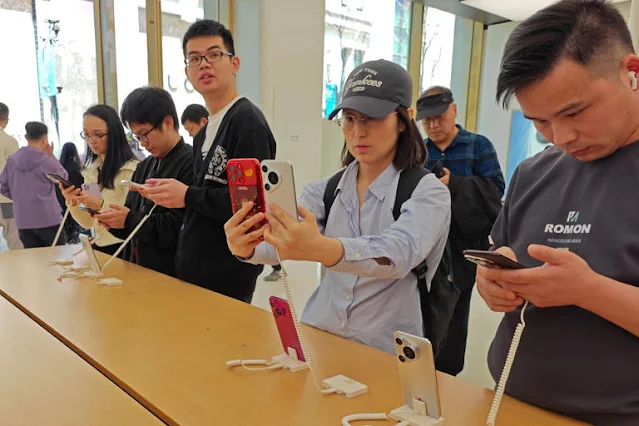Apple's recent drop in sales in China, despite offering rare discounts on iPhones, suggests that some consumers no longer consider Apple's flagship product to be the most technologically advanced option available.
One significant factor contributing to this decline is the absence of built-in artificial intelligence functions in iPhones, a feature that competitors like Huawei offer in China. Apple reported a 4.3% decrease in global sales for the January-March quarter compared to the same period last year, with sales in "greater China" (including mainland China, Taiwan, Hong Kong, and Macau) falling by 8% to $16.4 billion.
Counterpoint Research noted a nearly 20% decline in iPhone unit sales in China for the quarter, causing the iPhone to lose its top spot among smartphone brands in the country, slipping to third place behind local rivals Vivo and Honor.
Consumers in China have cited the lack of significant hardware and performance advancements as reasons for not upgrading to a new iPhone. Some are opting for Huawei, which continues to release advanced phones despite facing U.S. sanctions, while others are holding onto their old iPhones for longer periods.
For example, Tracy Xu, a 41-year-old human-resources manager in Shanghai, praised Huawei's camera, battery life, and phone reception over the iPhone. Xu had considered switching to an iPhone after facing difficulties using Google Maps on family trips abroad, caused by Huawei's inability to use the latest Google Android smartphone software due to sanctions. However, she discovered a Chinese app that helped her access internationally used Android apps, leading her to decide against switching to an iPhone.
Apple executives, however, remain confident in their China business. CEO Tim Cook stated that some iPhones are still the top-selling smartphones in urban China, expressing optimism for the future based on his recent visit to the country.
Despite Apple's usual avoidance of discount sales, the company ran a promotional event in China in January, reducing iPhone prices by up to $70 before the Lunar New Year holiday, a traditional gift-giving season.
In contrast, Huawei, which faced chip-related setbacks due to U.S. sanctions, made a comeback last year with self-developed chips that enabled its phones to support fifth-generation (5G) technology. Huawei's recent introduction of the Pura 70 series, priced from about $760 to $1,500, with even more powerful chips, further solidified its position in the market.
While most Chinese consumers prioritize price and performance when choosing a phone, geopolitical tensions and the Chinese government's ban on using iPhones in government agencies have not helped Apple's case. Huawei's unit sales in China grew by 70% in the January-to-March quarter, according to Counterpoint, with the iPhone 15 series underperforming overall in China's premium smartphone market.
Additionally, Samsung Electronics' entry into the AI smartphone market helped the South Korean company surpass Apple in global smartphone shipments in the first quarter, according to research firm Canalys.
Despite these challenges, Apple remains optimistic about its future in China and globally, especially as it plans to integrate AI into its smartphones. Apple's integrated ecosystem, which includes smartphones, tablets, watches, and laptops, is a key advantage, providing users with a unified experience. As Apple prepares to fully integrate AI into its smartphones, analysts believe AI will become an essential feature in midrange to high-end smartphones starting next year.


